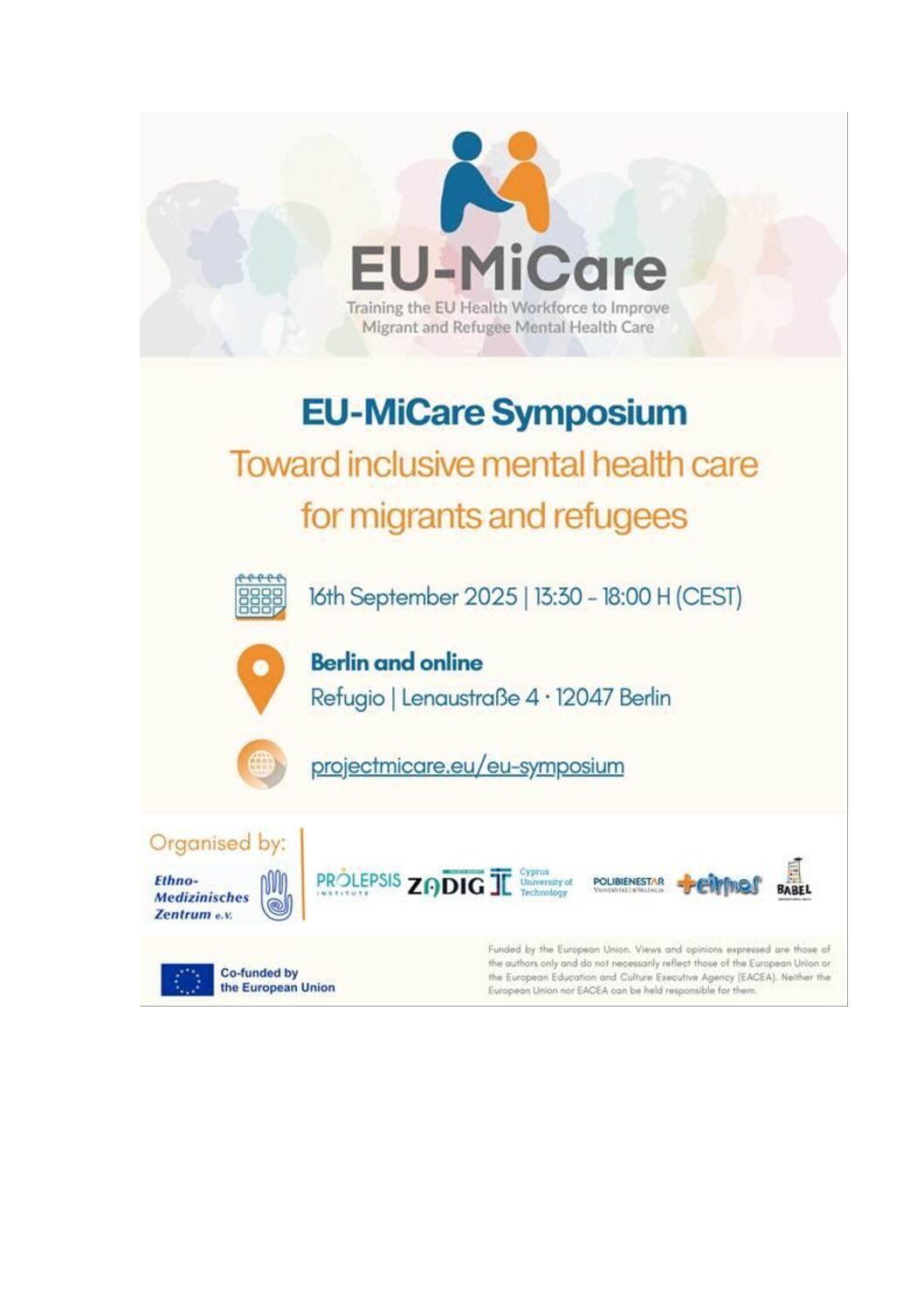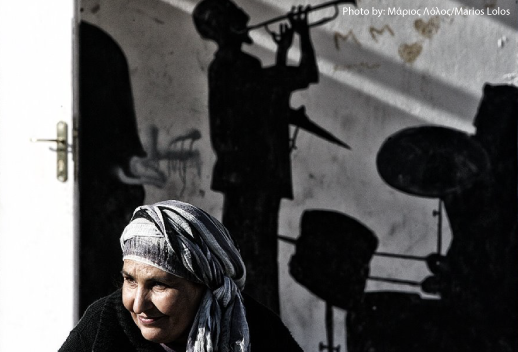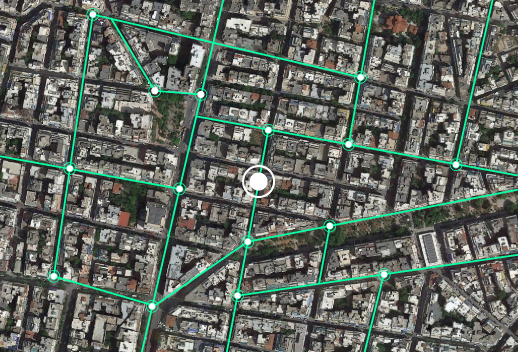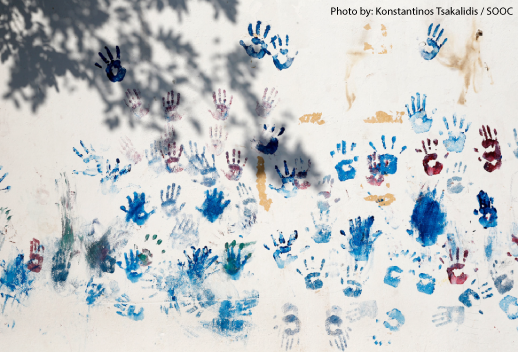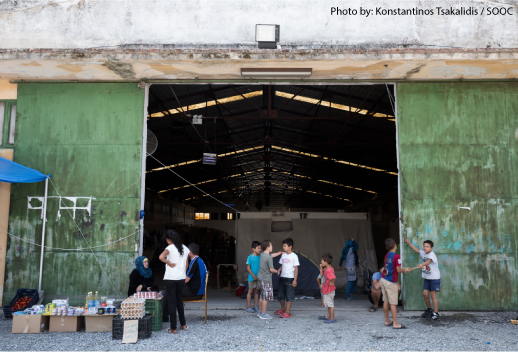Lesvos, May 24, 2022
POLICY NOTE
For refugees and asylum seekers residing on Lesvos, mental health remains an invisible vulnerability
Since 2015, several reports[1] have shed light on the shortcomings of mental health support offered to asylum seekers and refugees both on the islands and mainland Greece. As Mental Health and Psychosocial Support (MHPSS) and human rights organizations on Lesvos, we have long witnessed ongoing systematic neglect and patient rights violations of refugees with psychological concerns[2], described further down this Note. Our attempts to raise these issues with the Ministry of Health, designated public mental health focal points and other authorities, have thus far seen no visible results. In light of the recent announcement by the Ministry of Health regarding the creation of supplementary mental health facilities dedicated specifically to refugees and migrants,[3] we are issuing this policy note to highlight four key gaps that we have observed through our work on the ground and offer our recommendations.
- Lack of specialized mental health support
Among refugees and asylum seekers who access mental health services, certain populations are more vulnerable and require more specialized support. Individuals with concurrent disorders[4], children with developmental conditions, as well as chronic psychiatric patients or people who have yet to receive a definitive diagnosis have been precluded from receiving appropriate and timely care, with devastating consequences to their wellbeing. On Lesvos, there have hardly been any services to cover the needs of refugee children with developmental conditions; the only child psychiatrist on the island serves the needs of both the local and refugee population, resulting in long waiting times and delays in assessments. At the same time, individuals with substance abuse problems are only able to access prevention counseling programs that lack the infrastructure to provide in-house psychiatric support or interpretation, which is vitally important in bridging language and cultural barriers. Despite existing data pointing to the prevalence of refugee youth facing substance use issues, Lesvos has no therapeutic communities similar to those on the mainland. Moreover, there are no long-standing collaborations between NGOs and public services to implement targeted addiction interventions, treatment and rehabilitation.
Another harrowing aspect of this reality is that chronic mental health conditions are difficult to diagnose in this context, resulting in inconsistent assessments with multiple – and occasionally conflicting – diagnoses and medication between practitioners. Indicatively, throughout the course of a year, Ms F., 56 years old, was alternately diagnosed with Unspecified psychosis (ICD-10 Code: F29), Hypomania (F30), Dementia in Alzheimer (F00) by different psychiatrists and neurologists in the Lesvos hospital. All these practitioners seemingly failed to engage in interdepartmental communication or cross-reference the given diagnoses, despite practicing in the very same hospital on the island. Ms F. is among several chronic psychiatric cases seen by MHPSS actors who require holistic care beyond medication and psychological sessions; such cases benefit from treatment in community mental health settings with proper accommodation and support from interdisciplinary staff (including occupational therapists, nurses, support workers, etc). Presently, such individuals rely on the caregiving support of relatives or even neighbors, which is highly insufficient to address their complex and evolving needs.
- Lack of established protocols for psychiatric care and mental health emergencies
There are no documented, centralized or agreed-upon standards and referral pathways when it comes to mental health emergencies of refugees and asylum seekers residing in the Mavrovouni camp. Typically, individuals in need of psychiatric evaluation and/or prescription of psychotropic medications, when identified, are referred to private Greek psychiatrists through coordinated efforts of MHPSS staff. At present, the identification of individuals experiencing mental health crises – as well as any follow-up actions including psychological first aid during night shifts or any referrals to hospital emergency services – are heavily dependent on MHPSS staff, who often have to navigate extremely challenging situations outside working hours, with little to no support from local medical authorities.
In the absence of a formally established pathway or common emergency protocol, there have been observed inconsistent, irregular or arbitrary responses to people requiring immediate and urgent care as a result of attempted suicide, self-harm, psychosis and other emergencies. Several cases of individuals with acute mental health needs have been reported, with some being well-received by the hospital emergency department and others being turned away on the justification that their challenges do not constitute an emergency and therefore do not require consultation with or treatment at the inpatient psychiatric unit. This is likely due to a combination of factors ranging from hospital staff shortages and lack of coordination and efficient information-sharing between NGO and state MH actors to inadequate training and lack of cultural competency of hospital staff. Critically, this results in the ongoing re-traumatization of refugee patients, who find themselves being redirected from one service to the other while their mental health condition continues to deteriorate. For people in urgent need of care, MHPSS staff are tasked with the unenviable duty of weighing in this risk of re-traumatization when referring to the emergency unit, while faced with widespread resistance from public health actors.
- Limited accessibility to hospital psychiatric services
For refugees and asylum seekers who require psychiatric services and/or hospitalization for a mental health emergency, access to public health care on Lesvos remains an arduous process. While acknowledging that this picture is not indicative of all services offered and all professionals employed in the Lesvos hospital, and that locals also suffer from many of the shortcomings of the system, multiple and serious challenges have been observed and reported by refugee patients and NGO workers alike. These include difficulties accessing hospital services (such as challenges booking appointments in the first place), lack of in-hospital interpretation (with NGO-hired interpreters accompanying patients often being sent away without justification), dismissive and discriminatory attitudes among hospital staff[5], and lack of adequate information provided to patients admitted to the psychiatric unit concerning their condition and health status.
Moreover, we have identified the recurring psychiatric practice of diagnosing refugee patients with ‘Problems related to lifestyle, unspecified’ (ICD-10 Z72.9 diagnosis code), whilst heavy antidepressants and antipsychotics are being prescribed. Though mental distress is linked to social determinants, the hospital’s insistence on using the Z72.9 code as the sole psychiatric diagnosis for refugees and asylum seekers reflects a lack of interest in the complexity of their experience. Living conditions are used as a pretext to deny that refugees have legitimate mental health problems and diagnose them appropriately. As an example, MHPSS actors have identified at least 5 cases in the last year with indications of PTSD, OCD and psychosis which had received the diagnosis Z72.9 along with unwarranted prescriptions of antidepressant and antipsychotic medication.
- Lack of appropriate accommodation for psychiatric patients
As the number of available places in apartments in the ESTIA II accommodation program is steadily decreasing across Greece, there is growing concern about the wellbeing of mental health patients. MHPSS actors on Lesvos have observed a significant protection gap since November 2021, when ESTIA II closed down on the island and housing options for vulnerable individuals outside of the camp became non-existent. Individuals with severe and chronic mental health conditions face additional discrimination as every accommodation scheme implemented to this date (including ESTIA I and ESTIA II) lists ‘psychiatric conditions’ as an exclusion criterion and thus prohibits them from accessing appropriate housing and support. Additionally, the only government-funded program providing integration support to recognized refugees, HELIOS, offers little to no external support to individuals enrolled in the program in navigating the administrative process of signing a housing contract. It must be noted that this process is arguably more demanding for those currently facing psychosocial challenges.
In light of the dramatic reduction in available accommodation services and the expected closure of ESTIA-II in late 2022, combined with the assumption that “psychiatric conditions should be left to specialists”, the only viable resource available to psychiatric patients is medication, rather than targeted, comprehensive support that addresses the various social determinants of mental health, such as access to safe and dignifying living conditions. Given this lack of infrastructural support, practitioners feel disproportionately responsible for the future, safety and wellbeing of their patients.
Recommendations
In anticipation of the new mental health facilities being developed across Greece specifically for refugees and asylum seekers, we consider this an opportune moment to address long-standing gaps. We welcome the announcement as a necessary step forward, but the fact remains that hundreds of refugee mental health patients on Lesvos continue to be exposed to further harm. Based on the aforementioned points, we encourage the Ministry of Health to take the following into consideration and take the necessary steps to prioritize and facilitate access to national health service delivery for refugees and asylum seekers:
- Work in partnership with MHPSS actors and regularly participate in central MHPSS coordination mechanisms and discussions to harmonize the response within North Aegean islands and mainland Greece;
- Ensure appropriate response and continuation of care for individuals who receive psychiatric support on the islands and are transferred to the mainland, through proper monitoring and interventions that explicitly address barriers to access to healthcare, such as distance to facilities, interpretation services and discriminatory attitudes by providers;
- Implement formal evidence-based standards, treatment protocols, guidelines, as well as referral mechanisms and accompaniment services for acute mental health crises and emergencies and ensure they are properly followed by both public, institutional, and community-based MHPSS actors and NGOs;
- Implement a comprehensive referral system that would allow for increased transparency and accountability among mental health actors, while avoiding duplication of cases and ongoing re-traumatization of patients;
- Consider on-site provision of psychiatric services, as well as mobile MHPSS teams and community mental health support for adults and children in urgent need of care on the islands;
More specifically, regarding the supplementary mental health facilities announced for the refugee and migrant populations:
- To ensure that shelters and interventions of psychosocial rehabilitation target the specific needs of refugee patients with complex or chronic mental health challenges and/or concurrent disorders while accounting for the community (re-)integration of such individuals, ensuring that they feel safe and stabilized, regain their dignity, and connect with others, while having access to vital services such as housing, cash assistance and livelihoods programs;
- To provide appropriate accommodation for refugees with severe mental health concerns by creating additional shelters or placements for refugees in facilities that already exist for the general population across Greece and also consider a semi-independent living [SIL] scheme to ensure dual integration (as refugees in Greece; as mental health patients in the community);
- Through collaboration, knowledge sharing, and exchange of technical expertise between state and NGO actors, to explore ways (including capacity building and ongoing supervision provision) through which the new facilities will promote systemic change by avoiding perpetuation of problematic attitudes and practices witnessed in public services in recent years;
- To provide clarity on the reasoning behind the need to establish distinctive services for refugees, asylum seekers and migrants, and ensure that these services are in line with national systems addressed to the local population (such as accreditation, supervision by the Ministry of Health, harmonization of standards, etc.);
- To consult and engage with specific target groups such as people with disabilities; people with co-occurring psychiatric and neurological conditions; women and girls; men and boys; LGBTQIA+ individuals; children and adolescents; parents, guardians and caregivers; people facing addiction issues; etc, about their views and needs regarding these services. This may take the form of a participatory action plan allowing refugees to be informed about – and have meaningful impact in – the planning and execution of services that affect them, as well as a community feedback and response mechanism using tools such as interviews, focus groups and questionnaires, and ensuring appropriate action by service providers has been taken in a responsible and transparent manner
Signatures
- Babel Day Centre
- Better Days
- Crisis Management Association (CMA)
- ECHO100PLUS
- Fenix – Humanitarian Legal Aid
- HIAS Greece
- International Rescue Committee (IRC)
- INTERSOS
- Jesuit Refugee Service Greece (JRS Greece)
- Legal Centre Lesvos
- Lighthouse Relief
- Médecins Sans Frontières Greece (MSF Greece)
- MVI – Medical Volunteers International
- Refugee Legal Support (RLS)
- Samos Volunteers
- Symbiosis-School of Political Studies, Council of Europe Network
[1] Médecins Sans Frontières (2021), 9 June 2021, Constructing Crisis at Europe’s Border, Available at: https://www.msf.org/constructing-crisis-europe-border-migration-report; International Rescue Committee (2020), 22 December 2020, The Cruelty of Containment, Available at: https://eu.rescue.org/cruelty-of-containment; International Rescue Committee (2018), 25 September 2018, Unprotected, Unsupported, Uncertain, Available at: https://www.rescue-uk.org/report/unprotected-unsupported-uncertain; Médecins Sans Frontières (2017), 10 October 2017, Confronting a Mental Health Emergency on Lesvos and Samos, Available at: https://www.msf.org/greece-eu-border-policies-fuel-mental-health-crisis-asylum-seekers; Save the Children (2017), 16 March 2017, A Tide of Self-Harm and Depression: The EU-Turkey Deal’s devastating impact on child refugees and migrants, Available: https://resourcecentre.savethechildren.net/document/tide-self-harm-and-depression-eu-turkey-deals-devastating-impact-child-refugees-and-migrants
[2] Patient Rights, Observatory for Rights in Mental Health (Retrieved May 2022)
Report dated 19/3/2021 of Ministry of Health’s Special Committee for Monitoring Protection of Mental Health Patients Rights (Retrieved May 2022)
[3] Announcement by the Ministry of Health regarding the creation of supplementary mental health facilities dedicated specifically to refugees and migrants, Available: https://greece20.gov.gr/wp-content/uploads/2022/03/225.-Apofasi-entaksis-ergou_Mi-stegastikes-monades16820_5165700.pdf
[4] Individuals facing both a substance use and a mental health problem at the same time.
[5] From case examples provided by MHPSS staff working on Lesvos, patients with a refugee background are often deemed non-credible by hospital staff (“they are faking it”) and are being redirected to public health actors in the camp with the justification that their name needs to be on a list compiled by EODY before they can be seen at the hospital.

